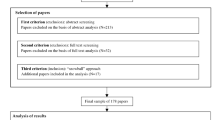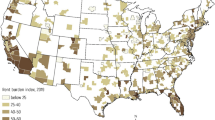Conclusions
I began this article with Colin Campbell's lament about the productionist bias in sociology and the related point that most sociologists concerned with consumption have ignored private meanings and small-scale structures in favor of public meanings and large-scale structures. This article calls attention to and builds on an emerging alternative approach to what happens after production, using an understanding of the social nature of objects that springs from Marcel Mauss's distinction between gifts and commodities.
Mauss's model directs attention to the conflict in industrial societies between the two realms of commodity exchange and gift exchange, which I have cast as the conflict between the world of work and the world of family, and as the contrast between commodities and possessions. Thus, the model directs attention to the fact that objects are not simply transformed in production and displayed in consumption. However important these facts may be for understanding objects and society, they do not exhaust the important ways that people experience, use, and think about the objects that surround them. In particular, Mauss's model throws into relief the problematic nature of the objects that surround us and that we use in our social relations. And in doing so it directs attention to the ways that people try to reconstruct and redefine those objects by transforming them into personal possessions. This transformation makes objects acquired as commodities suitable for gift transactions, and hence suitable for the key task of recreating social relationships and social identities, the task of creating, not merely defining, who we are and how we are related to each other.
Although the Maussian model addresses many of the links between people in the worlds of work and the home, and many of the ways that objects are part of these links, I am concerned here primarily with the ways that people can appropriate commodities in the process of purchase: shopping. This concern with shopping points out the social significance of retail trade, which I take to include advertising and shopping. This is not simply a passive conduit between production and consumption. Instead, it is an important point at which objects begin to leave the realm of work, commodities, and commodity relations and enter the realm of home, possessions, and gift relations. Shopping is an ubiquitous activity in industrial society and one that is highly significant culturally: we spend vast amounts of time, energy, money, and attention on it. Doubtless part of the reason for this is utilitarian, for we need to buy to live, but it would be foolish to reduce the significance of shopping to some combination of the need of individuals to acquire in order to survive and the need of companies to generate demand in order to profit. Thus, retail trade needs to be seen as well as a set of relations and transactions between seller and buyer that define and are defined by the objects and services involved, their history, and their future. My focus on purchasing food in supermarkets has the advantage of throwing into relief the problem of appropriation, because of the impersonality of object and social relations in large, self-service supermarkets. However, the very extremity of this example can create a false impression. As I noted, in other forms of shopping the social relations between buyer and seller, like the social identity of objects, can be more personal. This personality can be real, as when buyer and seller know each other or where the object is hand-made or even unique. Alternatively, it can be more purely symbolic, as when the selling company touts itself or its employees as friendly and caring or where the manufacturer advertises the personal nature of its commodities. In some cases, indeed, the manufacturing or trading company can present itself in such a way that the company itself becomes the “person” with whom the purchaser transacts.Footnote 1
In addition, because of the focus on the appropriation of commodities in purchasing, I have touched only briefly on production and the world of work more generally. As does life at home, so life at work involves the transaction of objects and labor. Relations at work, then, will shape and be shaped by the nature of what is transacted. Co-workers who transact things that are more clearly stamped with their own identity, as among service workers and craft producers, will likely have more personal relations with fellow workers than will those who transact things that are themselves relatively impersonal, as in assembly-line production. This variability in the objects and relations at work suggests that people will have diverse understandings of work, and hence of manufactured objects more generally, which will affect the need they feel to appropriate commodities.Footnote 2
In all, though, the point of this article is simple. People use objects to create and recreate personal social identities and relationships, and in industrial capitalist societies these objects are likely to be produced and purchased as commodities and understood as “manufactures” in Miller's sense. Our experience with and understanding of the production and sale of objects will affect the way we use them in transactions that create and recreate social identity and relationship, and will affect our understanding of the social identities and relationships that are created and recreated. Thus, the objects that people use in social relationships mediate between realms of economy and society, between the public realms where those objects are produced and distributed, and the private realms where those objects are transacted as part of social reproduction. The fact of this mediation and its effects on people's understanding of objects and social relations deserve careful attention.
Similar content being viewed by others
Notes
Some of the complexities of this personification are described in Wally Olins, The Corporate Personality (London: Design Council, 1978).
It is also likely that those involved in more craft-like production will face a problem that is the inverse of those faced by shoppers: the need to make impersonal the things that they have produced and infused with their identities. One would expect that such workers have rituals and activities of alienation, the inversion of the rituals and activities of appropriation that have been described in this article.
Author information
Authors and Affiliations
Rights and permissions
About this article
Cite this article
Carrier, J. Reconciling commodities and personal relations in industrial society. Theor Soc 19, 579–598 (1990). https://doi.org/10.1007/BF00147027
Issue Date:
DOI: https://doi.org/10.1007/BF00147027




